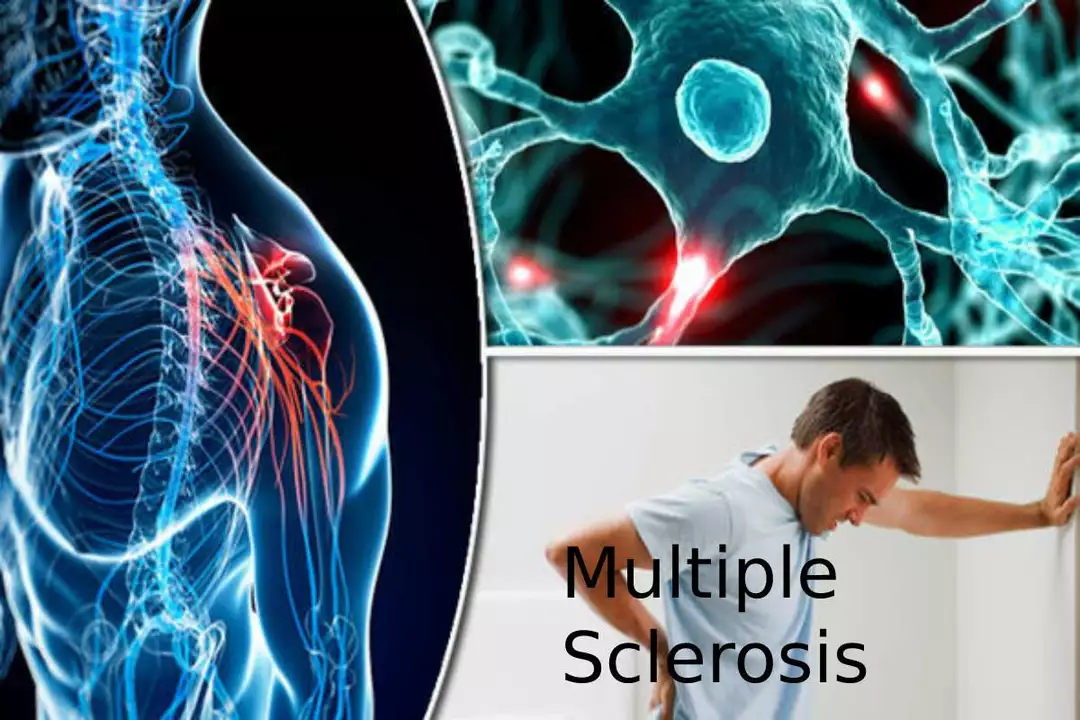Understanding Clinically Isolated Syndrome
Clinically Isolated Syndrome (CIS) is an initial neurological event that may be indicative of a future diagnosis of Multiple Sclerosis (MS). It is characterized by the presence of inflammation or demyelination in the brain or spinal cord, leading to various neurological symptoms. However, not everyone who experiences CIS will necessarily develop MS. In this section, we will delve into the symptoms and causes of CIS, and discuss the importance of early diagnosis and intervention.
Recognizing the Symptoms of Clinically Isolated Syndrome
Individuals with CIS may experience a range of symptoms, depending on the affected area of the central nervous system. Some common symptoms include optic neuritis (inflammation of the optic nerve, leading to vision problems), partial or complete paralysis, sensory disturbances, and difficulty with balance and coordination. It is important to recognize these symptoms early on, as timely intervention can help manage the condition and potentially delay the onset of MS.
Diagnosing Clinically Isolated Syndrome
Diagnosing CIS can be a challenging task, as its symptoms are similar to those of other neurological disorders. A neurologist will typically conduct a thorough clinical evaluation, which may include a neurological examination, magnetic resonance imaging (MRI) scans, and cerebrospinal fluid (CSF) analysis. These tests can help identify demyelination or inflammation in the brain and spinal cord, providing essential information for an accurate diagnosis.
The Role of Neurologists in Managing Clinically Isolated Syndrome
Neurologists play a crucial role in the management of CIS, providing guidance on the best course of action for each individual patient. They may recommend various treatment options, such as corticosteroids to reduce inflammation, or disease-modifying therapies (DMTs) to slow down the progression of the disease. Additionally, neurologists may provide valuable advice on lifestyle modifications, such as exercise, diet, and stress management, which can help improve overall health and well-being.
Monitoring Clinically Isolated Syndrome Over Time
As CIS may be an early sign of MS, it is essential to monitor the patient's condition closely over time. Regular follow-up appointments with a neurologist can help track the progression of the disease and adjust treatment plans accordingly. In some cases, CIS may not progress to MS, and the patient may not require further treatment. However, frequent monitoring is still necessary to ensure the patient's overall health and well-being.
Supporting Patients With Clinically Isolated Syndrome
Living with CIS can be an emotionally challenging experience, as the patient may be faced with uncertainty about their future health. Neurologists can provide valuable support and reassurance, helping patients to better understand their condition and cope with the potential challenges ahead. In addition to medical care, patients may benefit from joining support groups, where they can connect with others who are facing similar challenges, and learn more about coping strategies and resources.



5 Comments
Joseph Kiser
May 10, 2023 AT 04:00I've seen too many people panic after a CIS diagnosis like it's a death sentence. Look, your body's just throwing up a flare flag - doesn't mean the whole house is burning down. I had optic neuritis for 3 months, MRI showed lesions, docs said 'probably MS'... turned out it was a weird viral thing. You're not broken. You're not doomed. Just pay attention. 🤝
Hazel Wolstenholme
May 10, 2023 AT 20:56One must question the very epistemological framework underpinning the medicalization of CIS as a *precursor* to MS. The diagnostic criteria are, frankly, a house of cards built upon MRI artifacts and statistical correlations masquerading as causation. The pharmaceutical-industrial complex thrives on this ambiguity - 'disease-modifying therapies' sound noble, but do they alter trajectory or merely extend billing cycles? One must ask: who benefits from pathologizing transient neurologic phenomena?
Mike Laska
May 11, 2023 AT 08:18I was diagnosed with CIS three years ago and I'll tell you this - I didn't just *see* a neurologist, I *became* one. I read every paper, I joined every forum, I tracked my sleep, my sugar, my stress levels like my life depended on it - because it did. I cried in the MRI room. I screamed at my cat when she jumped on my leg and I couldn't feel it. I went from terrified to obsessed. And now? I'm in remission. Not because of drugs. Because I stopped waiting for the other shoe to drop and started living like my nerves were already broken - and guess what? They healed. Don't just sit there. DO SOMETHING.
Alexa Apeli
May 13, 2023 AT 01:00The nuanced, multidisciplinary approach to Clinically Isolated Syndrome, as delineated in this comprehensive exposition, is emblematic of the highest standards of contemporary neurological care. One is profoundly encouraged by the emphasis on holistic wellness - dietary optimization, structured physical activity, and psychological resilience-building as integral components of therapeutic strategy. The integration of patient-centered support networks further exemplifies the evolution of medicine from mere pathology management to true human flourishing. 🌱✨
Eileen Choudhury
May 13, 2023 AT 19:28CIS isn't the end - it's the universe tapping you on the shoulder saying 'hey, slow down, listen to your body.' I was told I'd get MS, I got yoga, meditation, turmeric lattes, and a 30-min walk every morning instead. No magic pill, just magic habits. You got this. And if you're scared? That's okay. I was too. But you're not alone. Let's walk this path together. 💪❤️